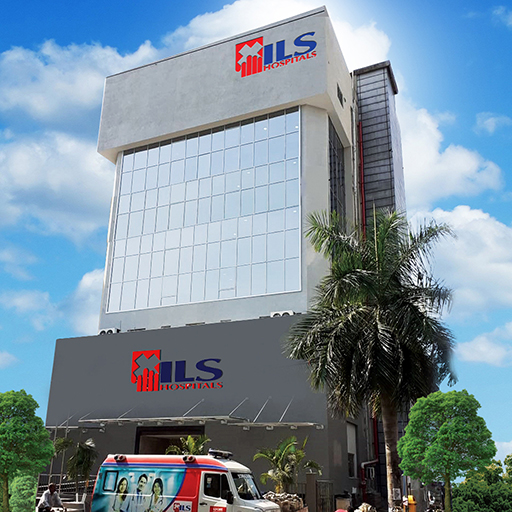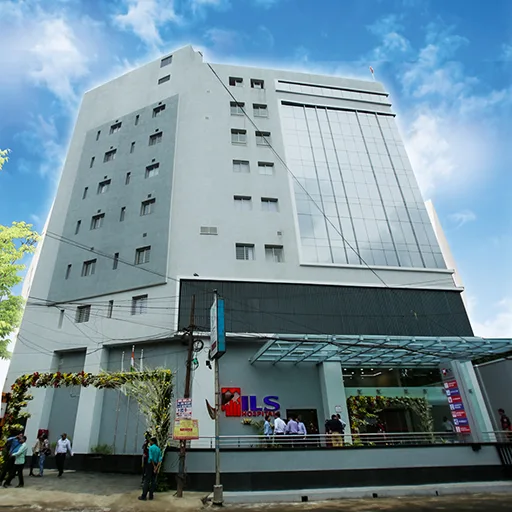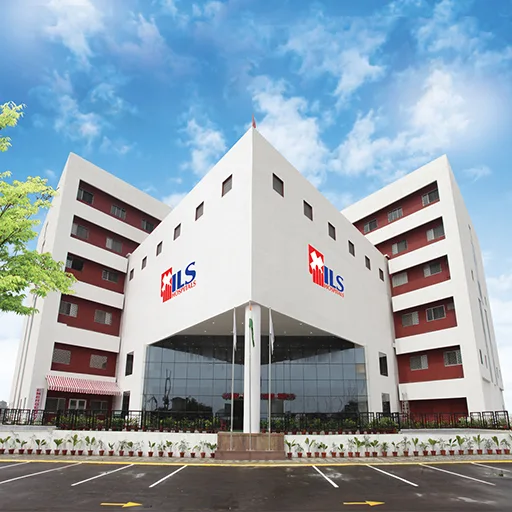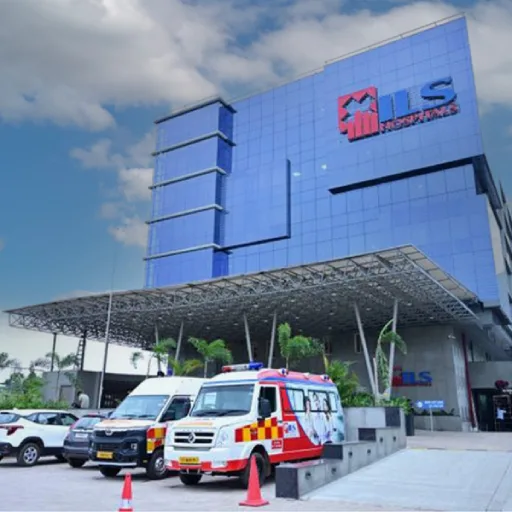Transform Your Life with Bariatric Surgery at ILS Hospitals: Your Partner in Weight Loss Journey
Bariatric surgery, also known as weight loss surgery, is a transformative treatment option for individuals struggling with morbid obesity. It stands out as one of the most effective methods for achieving substantial weight loss and maintaining it in the long run. Beyond weight reduction, bariatric surgery brings about significant improvements in obesity-related comorbid conditions, including Type 2 diabetes, high blood pressure, joint pain, sleep disorders like sleep apnoea, heart diseases, infertility, and more.
At ILS Hospitals, we understand the life-changing impact of bariatric surgery. Our state-of-the-art facilities, skilled surgeons, and patient-centric approach make us a leading choice for those seeking effective and safe weight loss solutions.
Why Choose Bariatric Surgery at ILS Hospitals:
Minimally Invasive Laparoscopic Technique:
Bariatric surgery at ILS Hospitals is performed using advanced laparoscopic techniques, ensuring minimal invasiveness. Most patients are up and about on the same day of the surgery, promoting quicker recovery.
Comprehensive Weight Loss Options:
We offer a range of bariatric surgical procedures, each carefully selected based on individual evaluations and counselling by our expert bariatric surgeons. Options include:
- Gastric Bypass
- Sleeve Gastrectomy
- Mini Gastric Bypass
- Gastric Bands
Benefits of Bariatric Weight Loss Surgery:
Bariatric surgery is not just about shedding excess weight; it’s about reclaiming a healthier life. The procedure helps in reducing the risk of life-threatening weight-related health issues, such as:
- Type 2 Diabetes
- High Blood Pressure
- Heart Disease
- Severe Sleep Apnoea
- Osteoarthritis
- Infertility
- Gastroesophageal Reflux Disease (GERD)
- Some Types of Cancer
Risks and Considerations:
While bariatric surgery is generally safe and effective, like any surgical procedure, it comes with potential risks. These may include infection, bleeding, anastomotic leaks, blood clots in legs, and anaesthesia-related issues. Long-term, non-compliant patients may experience deficiencies, with Vitamin B12 deficiency being the most common, but effectively manageable.
Results of Bariatric Surgery:
Bariatric surgery and weight loss treatments at ILS Hospitals offer long-term weight loss results. The amount of weight lost depends on the type of surgery and lifestyle changes adopted. On average, individuals can expect to lose approximately 70% of their excess body weight within two years, significantly enhancing overall health and well-being.
Why ILS Hospitals for Bariatric Surgery:
Expert Bariatric Surgeons:Our experienced bariatric surgeons are among the best in India, ensuring a safe and successful surgical experience.
Comprehensive Post-Surgery Support:We provide thorough post-surgery support, including dietary guidance, lifestyle recommendations, and regular follow-ups for sustained success.
Quality Healthcare at Affordable Cost:The bariatric or weight loss surgery cost at ILS Hospitals is notably lower compared to Western counterparts, without compromising on the quality of care.
Frequently Asked Questions (FAQs):
What is weight loss surgery?
Weight loss surgery, also known as bariatric surgery, is a surgical procedure designed to help obese individuals lose weight by modifying the digestive system.
Who is eligible for weight loss surgery?
Candidates typically have a BMI of 35 or more (or lesser with obesity-related health conditions) and have not had success with non-surgical weight loss methods.
What are some different types of weight loss surgeries?
Popular options include gastric bypass, gastric sleeve, adjustable gastric banding, and biliopancreatic diversion with a duodenal switch.
How does gastric bypass surgery work?
It involves creating a stomach pouch and rerouting the digestive tract, reducing food consumption and limiting calorie absorption.
What is the procedure for gastric sleeve surgery?
A portion of the stomach is permanently removed, leaving a smaller sleeve-shaped stomach, reducing food intake by causing early satiety.
Is weight loss surgery reversible?
While some surgeries, like gastric banding, are reversible, others, like sleeve gastrectomy, are generally considered permanent procedures.
What are the potential risks and complications of weight loss surgery?
Risks include infection, bleeding, blood clots, gallstones, nutritional deficiencies, or other long-term complications related to the altered digestive system.
How much weight could I expect to lose after weight loss surgery?
The amount of weight lost depends on the type of surgery, adherence to dietary and lifestyle changes, and individual factors.
Can weight loss surgery improve fertility?
Yes, it can improve fertility by correcting hormonal imbalance and reducing weight-related infertility issues.
Can weight loss surgery be performed on adolescents?
In some cases, it might be an option for severely obese adolescents after careful evaluation and multidisciplinary assessment.
Can weight loss surgery help with long-term weight management?
Weight loss surgery is a tool for significant weight loss, but long-term management requires consistent lifestyle changes, follow-up care, and support.
Embark on your journey to a healthier, happier life with bariatric surgery at ILS Hospitals. Our commitment to your well-being, combined with the expertise of our surgeons, ensures a safe and transformative experience. Book an appointment today and take the first step towards a healthier you!






























